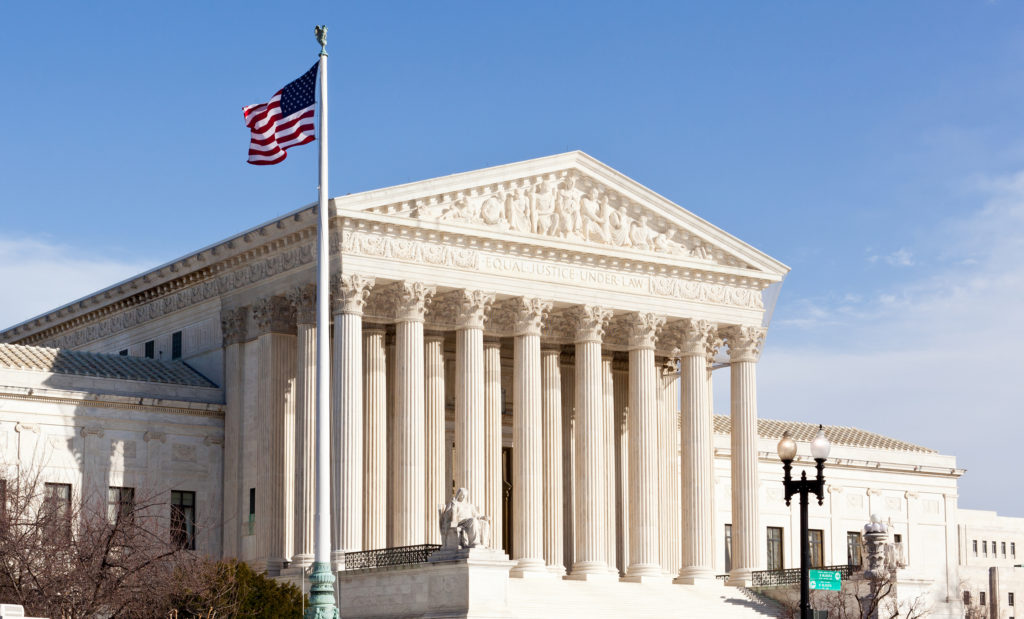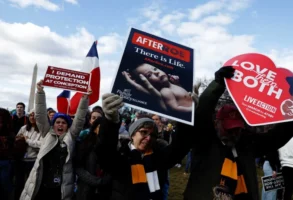
Published August 16, 2021
A coalition of religious groups in New York has petitioned the Supreme Court for relief from a mandate that requires all employers, regardless of religion or conscience, to cover elective abortions in their health-insurance plans.
The policy, first enacted in 2017 by New York’s Department of Financial Services, is facing a unified legal challenge from a diverse set of religious groups, including Catholic dioceses in New York, several orders of Catholic and Anglican nuns, and a number of Christian churches and charities.
Much like the Affordable Care Act’s contraceptive mandate, which was tacked on to the law by the Health and Human Services Department, New York’s mandate offers only the narrowest of exemptions for most religious employers. Disregarding that most religious groups serve individuals regardless of faith, New York’s Department of Financial Services has extended relief only to institutions that hire and serve individuals of the same religion as the employer.
Given the outward-facing nature of religious groups and charities, such a carve-out does next to nothing for nearly all institutions burdened by the mandate. The Carmelite Sisters at the Teresian Nursing Home in New York, for instance, welcome anyone in need regardless of their religion, so the exemption as it stands provides no relief to them. Most churches, like the First Bible Baptist Church in New York, offer ministries and services to the community without regard for religion.
In order to qualify for relief from New York’s abortion-funding mandate, these and other Christian churches and ministries would have to cease offering their services to anyone except for those individuals who share the same faith; in most cases, this would contradict the groups’ charitable mission. Unless they follow the mandate and provide coverage for elective abortions, the only other option for these groups is to forgo health insurance altogether, opening themselves up to immense fines from the state.
In their petition, the groups argue that under the Supreme Court’s ruling in Employment Division v. Smith, the free-exercise clause of the First Amendment prohibits New York from selectively exempting religious groups from its policies. They assert that the mandate doesn’t meet Smith’s “generally applicable” standard because it explicitly exempts some religious groups and not others, and it extends another blanket exemption only to religious groups that serve coreligionists.
But according to the lower courts that ruled in favor of the state, New York’s policy was acceptable under Smith because it did not “target” religion. As attorney Victoria Dorfman pointed out in an article on the case, there exists a “split among lower courts regarding whether exemptions undermine a law’s ‘general applicability’ under Smith.” Dorfman notes that courts in New York and California, along with the Ninth Circuit Court of Appeals, have held that exemptions usually don’t trigger strict scrutiny under Smith, while the Second, Sixth, and Eleventh Circuits, “have held that exemptions can undermine a law’s claim to ‘general applicability.’”
The Court addressed this question in Fulton v. Philadelphia, ruling in the majority opinion that some types of exemptions undermine the general applicability of a law under Smith, which suggests that, if it takes the case, the majority might well dissent from New York’s lower courts on this point.
This case is yet another milestone on the long list of recent court battles over religious liberty, and, in particular, it’s part of the unfortunate legacy of the legal fights over the HHS contraceptive mandate. Although both the Little Sisters of the Poor and the owners of Hobby Lobby won at the Supreme Court, the Court’s jurisprudence has left room for states to continue enforcing similar mandates in some circumstances.
In his concurrence in last summer’s Little Sisters of the Poor v. Pennsylvania, Justice Samuel Alito noted that, though the decision had come down in favor of the Catholic nuns on procedural grounds, the majority had missed an opportunity to rule that the First Amendment required a robust religious exemption for them.
This petition presents yet another opportunity for the Court to offer that protection, and the mere existence of the case suggests that, in the absence of a strong final word from the Court in support of religious freedom, progressive states and agencies will persist in issuing coercive mandates that violate the First Amendment.
Alexandra DeSanctis is a staff writer for National Review and a visiting fellow at the Ethics and Public Policy Center.
EPPC Fellow Alexandra DeSanctis writes on culture and family issues, with a particular focus on abortion policy and pro-life advocacy, as a member of the Life and Family Initiative.








